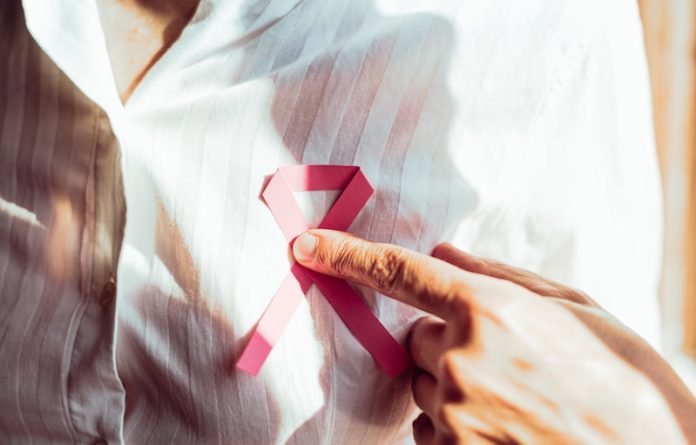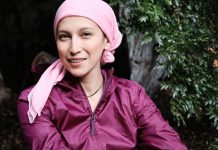
Breast cancer is the abnormal growth of the cells lining the breast lobules or ducts.
In a study from the University of Washington, scientists found an experimental vaccine against breast cancer safely generated a strong immune response to a key tumor protein.
The findings suggest the vaccine may be able to treat different types of breast cancer.
The phase I trial was designed to evaluate the safety of a vaccine that targets a protein called human epidermal growth factor receptor 2 (HER2) and to see if it generated an immune response to the protein.
HER2 is found on the surface of many cells, but in as many as 30% of breast cancers, HER2 is overproduced by as much as hundred times the amount seen in normal cells.
These “HER2-positive” cancers tend to be more aggressive and more likely to recur after treatment, but the overproduction of HER2 also triggers an immune reaction that can be beneficial.
Specifically, patients with HER2-positive breast cancers who mount a type of immune response called cytotoxic—or cell-killing—immunity are less likely to see their cancer recur after treatment and have longer overall survival than those who do not mount such an immune response.
In the study, the team created a DNA vaccine. Unlike protein vaccines, which typically contain a protein or part of a protein that you want the immune system to target, DNA vaccines contain the DNA instructions for the target protein.
Once injected, this DNA is taken up by cells at the injection site, which then start to produce the protein encoded in the vaccine’s DNA instructions.
The cells will then present the protein to the immune system, a process more likely to generate a strong, cytotoxic immune response.
The team tested 66 women who had metastatic cancer and were enrolled in the study.
All the women had completed a standard course of therapy and had either achieved complete remission or only had tumors remaining in their bone, which tends to grow slowly.
The study participants were divided into three groups with each participant receiving three injections.
One group received three low-dose injections (10 mcg) of the vaccine, one group got three injections with an intermediate dose of 100 mcg, and one group, three injections of a high dose, 500 mcg.
They also received the immune-stimulating drug granulocyte-macrophage colony-stimulating factor (GM-CSF), which promotes cytotoxic immunity.
The participants were then followed for three to 13 years (median follow-up was nearly 10 years).
The results showed that the vaccine was very safe. In fact, the most common side effects in about half the patients were very similar to that with COVID vaccines: redness and swelling at the injection site and maybe some fever, chills, and flu-like symptoms.
The vaccine also successfully stimulated the desired cytotoxic immune response without triggering severe side effects, with the strongest immune response appearing in patients who received the middle dose.
The researchers noted that the participants have done much better than would be expected in patients with similar stages of breast cancer, about half of whom would be expected to die within 5 years of treatment.
If you care about cancer, please read studies about Vitamin D deficiency linked to higher risk of breast cancer, and how drinking milk affects risks of heart disease and cancer.
For more information about cancer, please see recent studies about artificial sweeteners linked to higher cancer risk, and results showing vitamin D supplements strongly reduces cancer death.
The study was conducted by Dr. Mary “Nora” L. Disis et al and published in JAMA Oncology.
Copyright © 2022 Knowridge Science Report. All rights reserved.



